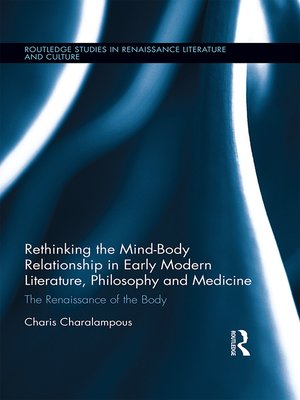Rethinking the Mind-Body Relationship in Early Modern Literature, Philosophy, and Medicine
ebook ∣ The Renaissance of the Body · Routledge Studies in Renaissance Literature and Culture
By Charis Charalampous

Sign up to save your library
With an OverDrive account, you can save your favorite libraries for at-a-glance information about availability. Find out more about OverDrive accounts.
Find this title in Libby, the library reading app by OverDrive.



Search for a digital library with this title
Title found at these libraries:
| Library Name | Distance |
|---|---|
| Loading... |
This book explores a neglected feature of intellectual history and literature in the early modern period: the ways in which the body was theorized and represented as an intelligent cognitive agent, with desires, appetites, and understandings independent of the mind. It considers the works of early modern physicians, thinkers, and literary writers who explored the phenomenon of the independent and intelligent body. Charalampous rethinks the origin of dualism that is commonly associated with Descartes, uncovering hitherto unknown lines of reception regarding a form of dualism that understands the body as capable of performing complicated forms of cognition independently of the mind. The study examines the consequences of this way of thinking about the body for contemporary philosophy, theology, and medicine, opening up new vistas of thought against which to reassess perceptions of what literature can be thought and felt to do. Sifting and assessing this evidence sheds new light on a range of historical and literary issues relating to the treatment, perception, and representation of the human body. This book examines the notion of the thinking body across a wide range of genres, topics, and authors, including Montaigne's Essays, Spenser's allegorical poetry, Donne's metaphysical poetry, tragic dramaturgy, Shakespeare, and Milton's epic poetry and shorter poems. It will be essential for those studying early modern literature, cognition, and the body.







